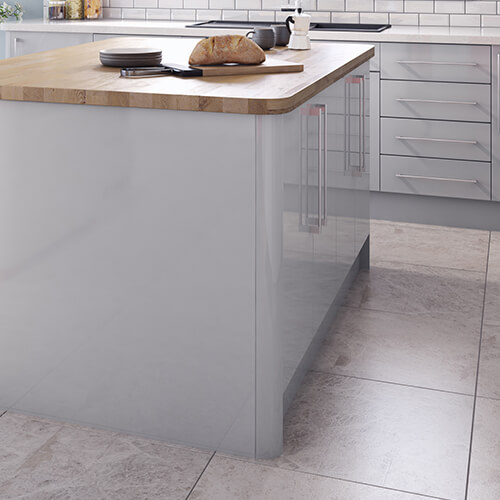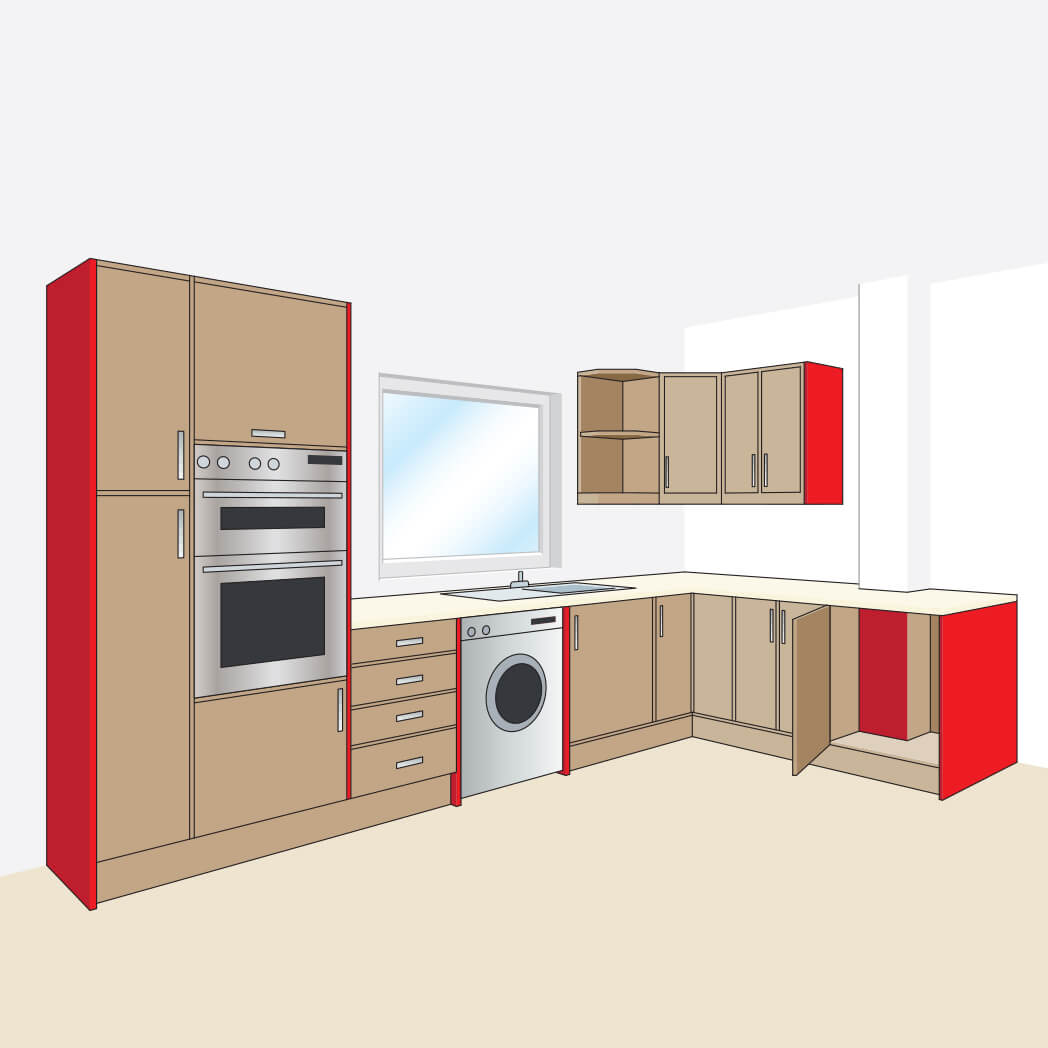Pillars & Radius End Posts Explained
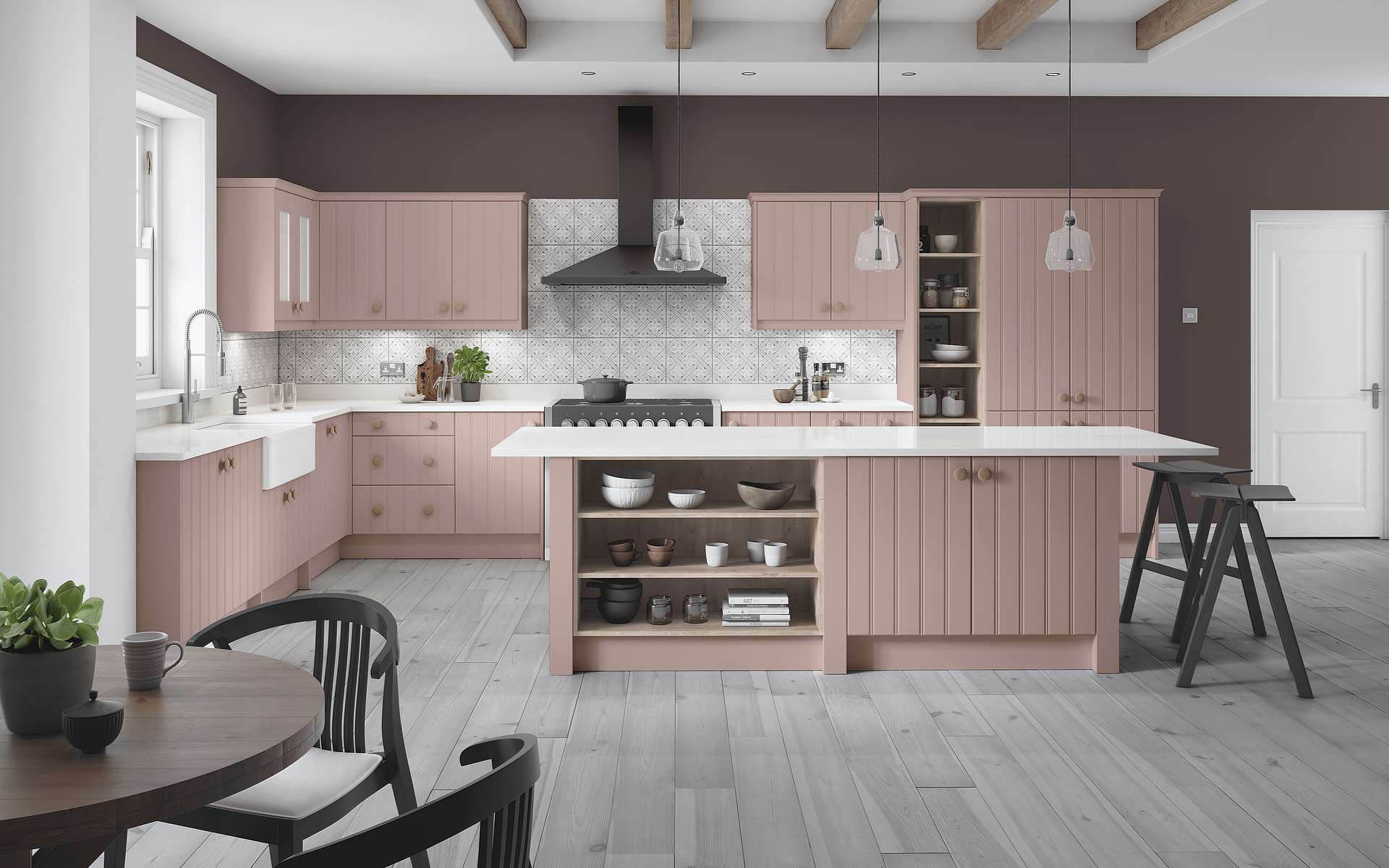
Square End Posts on St Ives Antique Rose Kitchen
Your Ultimate Guide to Achieving a Sleek and Complete Kitchen Look
Uncover the secrets behind pillars and radius end posts, the unsung heroes of kitchen design. Understand their differences, installation nuances, and how to choose the one that complements your kitchen’s style perfectly.
The Unseen but Unmissable: Pillars and Radius End Posts
Radius End Post on Lumino Light Grey Gloss Kitchen
Achieving a sophisticated, seamless look in your kitchen is often down to the details. One crucial aspect many overlook is the kitchen end post.
These little marvels contribute significantly to the aesthetic and functional design of your kitchen.
Today, let’s dive into two popular types of end posts - pillars and radius end posts - to help you decide which suits your needs best.
What Sets Them Apart?
Radius End Posts: The Art of Curvature
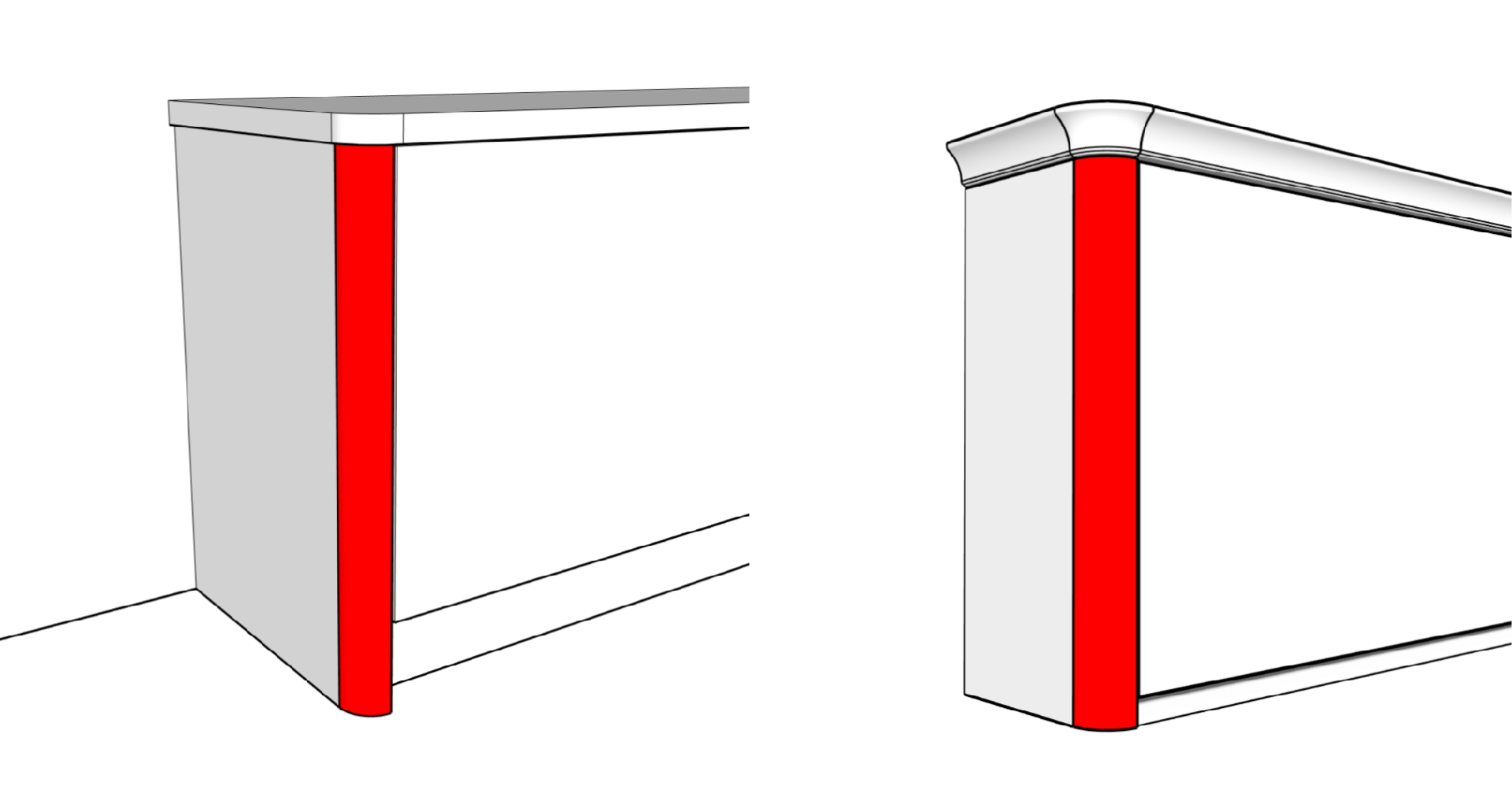
Radius or curved end posts are all about subtlety and sophistication. They feature a smooth, rounded design that allows your run of kitchen units to transition seamlessly into the end panel. These end posts are perfect for modern kitchens, where the focus is on clean, uninterrupted lines.
Pillar End Posts: The Bold Statement
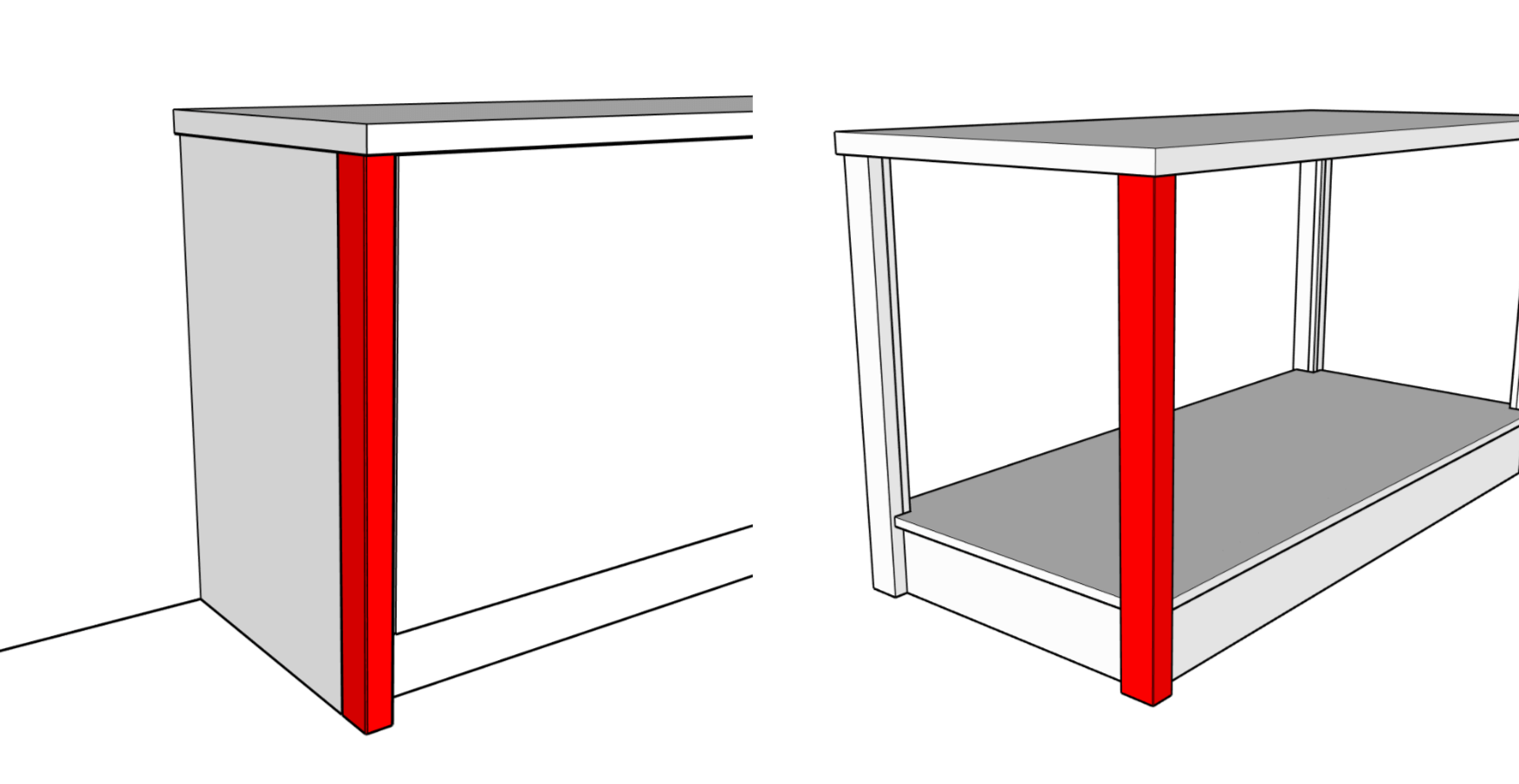
On the other side of the spectrum, we have pillar end posts. With their chunky end panels, these are designed to be the showstoppers. They add an element of grandiosity and are well-suited for kitchens that aim for a more classical or robust look.
Deciding Factors: What to Consider
Choosing between pillar and radius end posts involves several considerations, the most important being:
- Design Theme: Does your kitchen have a contemporary or classic feel? Pillars might be more suited for the latter, while radius end posts often complement modern designs.
- Space: The size of your kitchen can influence your choice. Pillar end posts, being chunkier, might overwhelm a smaller space.
- Personal Taste: Sometimes, it all boils down to what you personally find more appealing.
The Installation Essentials
Installing either a pillar or radius end post requires simultaneous fitting of the end panel for several good reasons:
- Scribing the End Panel: End panels arrive in oversized lengths, allowing them to be precisely cut on-site. This ensures a snug fit and helps to adjust for any wall imperfections.
- Alignment & Seamlessness: One common error is aligning the end panel flush with the carcass side panel. This leaves a noticeable 'step' once the doors and drawers are fitted. Always align the end panels with the front edge of the doors and drawers for a seamless finish.
- Process & Tools: Use a level and measuring tape to ensure everything aligns perfectly. It’s not just about looks; a poorly aligned end post can cause functional issues down the line.
Fitting a Square Pillar or a Radius Feature End: Step-By-Step
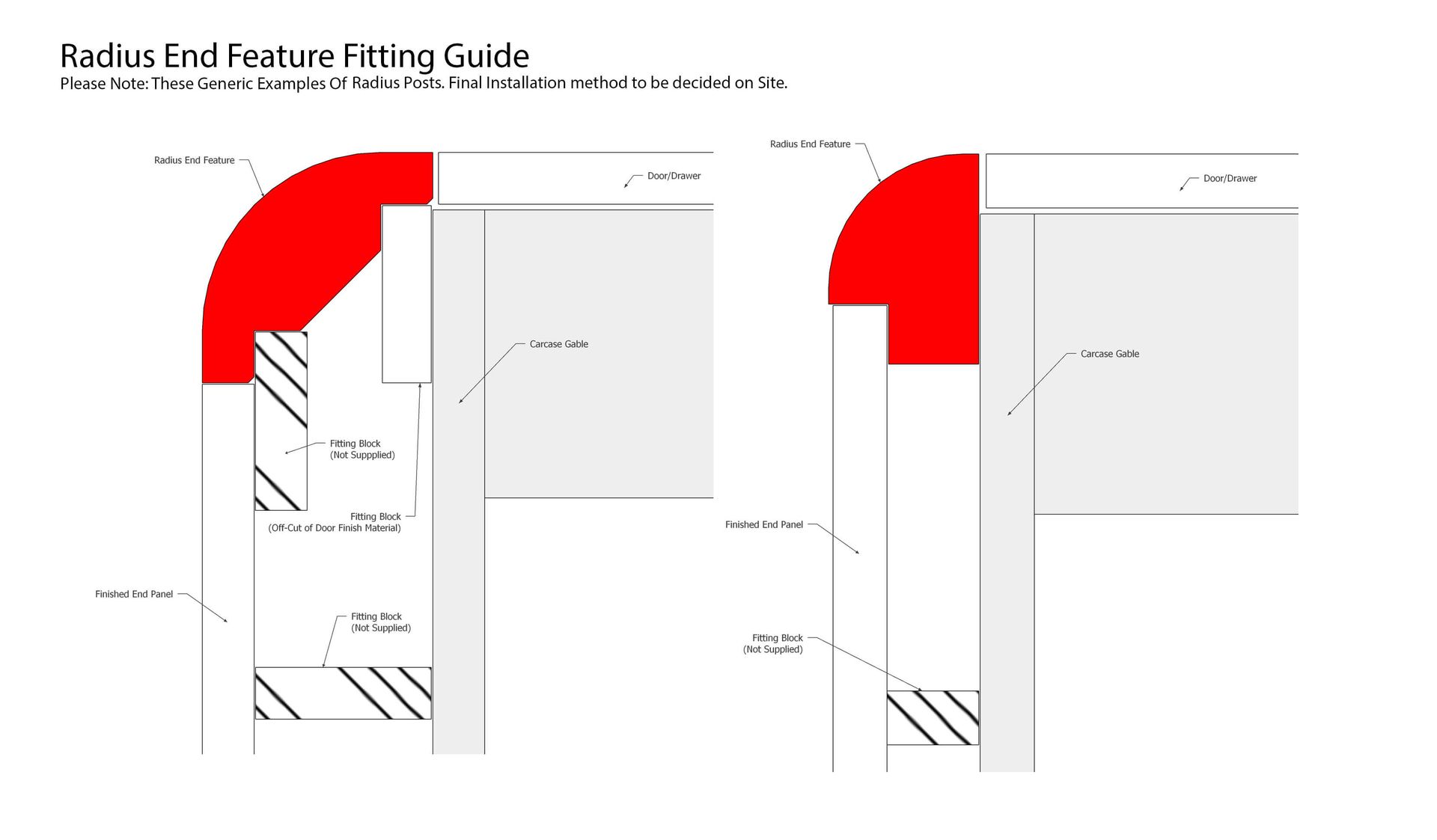
- Position the Post: First, place the radius feature end post where you desire it to be and secure it to the unit from the inside with screws.
- Alignment for Perfection: Slot the end panel into the gap created by the radius feature. It's crucial to ensure that the curve of the radius and the start of the end panel line up perfectly.
- Structural Integrity: Behind the radius part, use timber to pad out the hollow. This provides a sturdy backing for the end panel to be securely attached.
- Finishing Touches: Once everything is secure, you may also opt to finish the joint area with sealant or matching edge tape for added elegance.
FAQ: Your Questions Answered
Navigate through our comprehensive FAQ section to get quick answers to all your queries about kitchen end posts. From understanding the nuances between pillars and radius end posts to insightful installation tips, find reliable, expert advice to make your kitchen design journey smooth and successful.
What is a kitchen end post?
A kitchen end post sits at the end of a run of units to give your kitchen a finished, complete look.
What is a pillar end post?
A pillar end post has a chunky appearance and is designed to make a strong, aesthetic impact.
What is a radius or curved end post?
A radius end post features a smooth, rounded design, allowing for a seamless transition between units and end panels.
Can I install the end post myself?
Yes, if you're comfortable with DIY tasks, installing an end post is achievable. However, professional installation is recommended if you're not a confident DIY enthusiast.
How do I choose between a pillar and a radius end post?
Consider your kitchen's overall design theme, the available space, and your personal taste to decide between the two.
What tools will I need for installation?
Basic tools like a saw, screwdriver, measuring tape, and a level are usually sufficient for installing an end post.
What is scribing and why is it important?
Scribing is the process of cutting the end panel to fit precisely against the wall or adjoining surfaces. It's crucial for achieving a seamless look.
What is the typical cost of an end post?
The cost can vary widely depending on the material, design, and whether it's custom-made. However, Better Kitchens offers a range of affordable yet high-quality options.
Conclusion: Make Your Kitchen a Masterpiece
Your kitchen is more than just a functional space; it's an extension of your style and taste. The right end posts can accentuate your kitchen's design, contributing to a room you'll love spending time in.
Ready to elevate your kitchen to the next level? Browse our premium selection of pillars and radius end posts at Better Kitchens.

